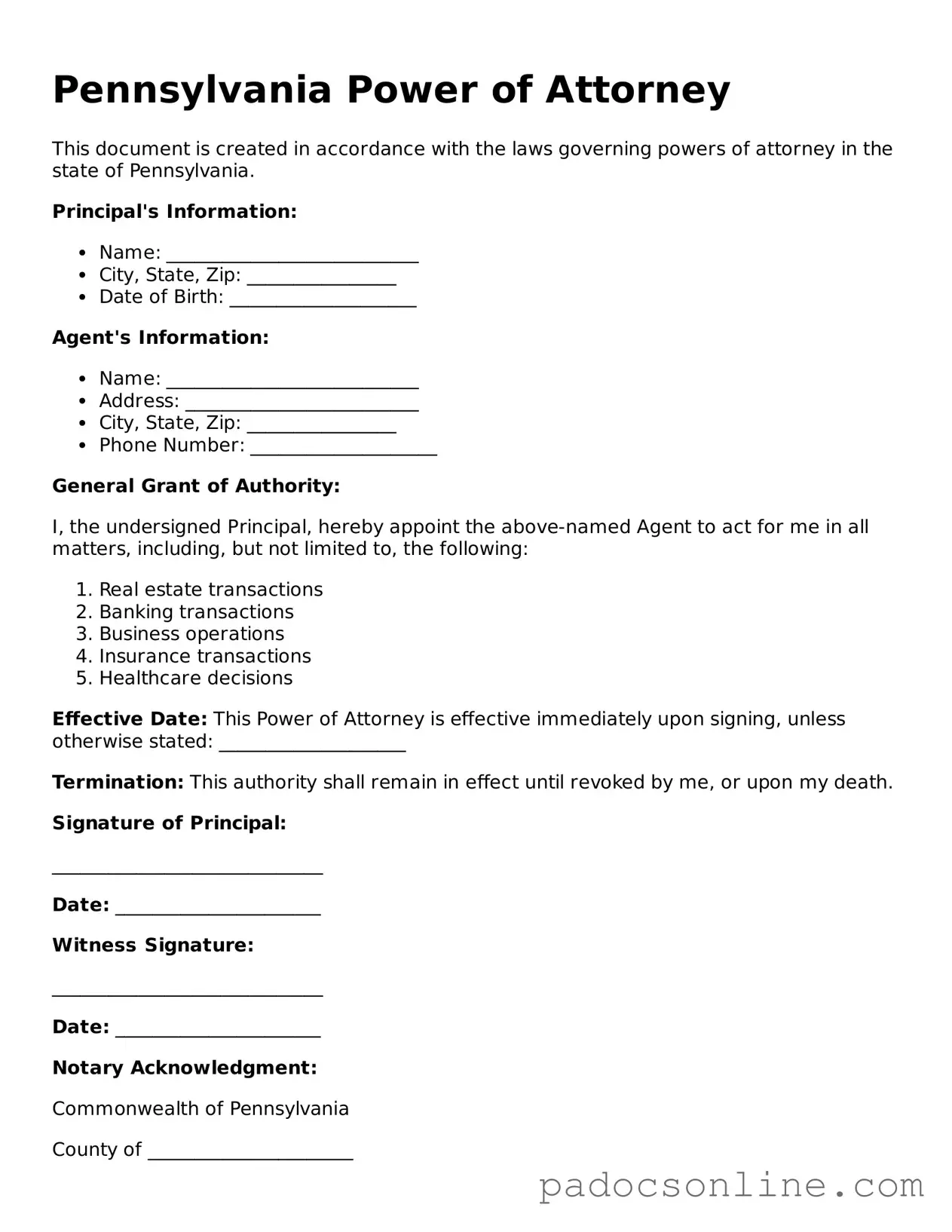Filling out the Pennsylvania Power of Attorney form can be a straightforward process, but there are common mistakes that individuals often make. One frequent error is not selecting the appropriate type of Power of Attorney. There are different types, such as general or limited, and choosing the wrong one may lead to complications in the future. It’s essential to understand the differences and select the one that best fits your needs.
Another common mistake is failing to clearly identify the agent. The agent is the person you authorize to act on your behalf. If the name is misspelled or the contact information is incomplete, it can create confusion and hinder the agent's ability to act. Always double-check the details to ensure accuracy.
People often overlook the importance of signatures. Both the principal, the person granting the authority, and the agent must sign the document. Additionally, some individuals forget that the form must be notarized in Pennsylvania. Without a notary’s signature, the document may not be considered valid, which can lead to significant issues later on.
Another mistake is not specifying the powers granted to the agent. The Power of Attorney form allows you to outline specific powers, such as handling financial matters or making healthcare decisions. If these powers are not clearly defined, the agent may not have the authority needed to act effectively on your behalf.
It is also important to consider the timing of the Power of Attorney. Some individuals make the mistake of waiting until they are in a crisis to fill out the form. This can lead to rushed decisions and potential errors. It is advisable to complete this document well in advance of any anticipated need.
Lastly, individuals may forget to review and update the Power of Attorney regularly. Life circumstances change, and so do relationships. It’s crucial to revisit the document periodically to ensure that it still reflects your wishes and that the appointed agent is still the right choice. By avoiding these common mistakes, you can ensure that your Power of Attorney is effective and meets your needs.
